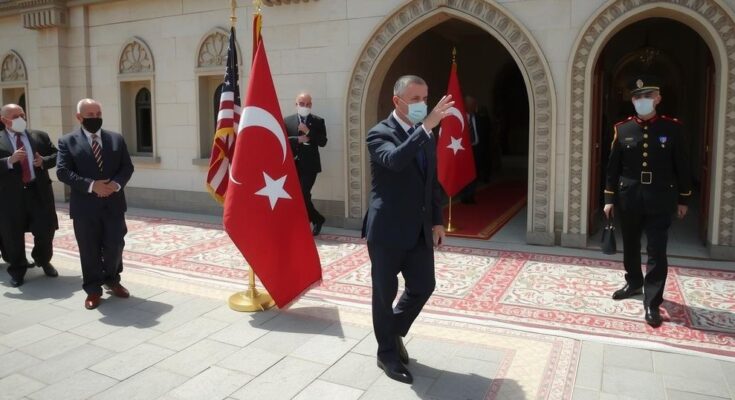President Erdogan of Turkey plans to meet Egyptian President Sisi on December 19 to discuss Syria and related regional concerns. The visit signifies potential thawing relations between Egypt and Turkey, historically adversarial, amidst new political dynamics following the overthrow of Assad. Erdogan’s influence in Syria, particularly concerning transitional governance, will be a focal point of the discussions, alongside broader regional diplomacy involving Iran and reconstruction efforts.
President Recep Tayyip Erdogan of Turkey will visit Cairo to engage in discussions with Egyptian President Abdel Fattah el-Sisi, with a significant focus on the evolving situation in Syria. Scheduled for December 19, the meeting coincides with the D-8 summit of developing nations. The interest in this dialogue arises as Cairo seeks to alleviate its concerns regarding Syria’s newly established government following the ousting of Bashar al-Assad. Erdogan’s influence in the region appears to be on the rise, particularly in light of recent alterations in the Syrian political landscape.
Erdogan’s longstanding support for Syrian rebels has positioned Turkey as a pivotal player in Syrian affairs, especially after the establishment of a transitional government in Damascus. This visit is significant as it marks a potential thaw in relations between Egypt and Turkey, which have been historically antagonistic due to differing stances on regional conflicts, especially during the Arab Spring when Turkey supported the Muslim Brotherhood and Egypt’s Sisi led a coup against its government.
In light of the recent developments in Syria, the presence of Turkey’s National Intelligence Organisation chief Ibrahim Kalin in Damascus has heightened interest and concern among regional powers, underscoring Turkey’s strategic ties to opposition groups. The visit also comes at a time when Egypt is attempting to navigate its diplomatic relations amidst this shifting landscape. The discussions between Erdogan and Sisi may also encompass wider regional diplomacy initiatives, including potential talks involving Iran, as they seek to manage the post-Assad scenario.
The context of this meeting revolves around the recent toppling of the Assad government in Syria and the subsequent establishment of a transitional administration by Syrian rebels, groups that Turkey has historically supported. Turkey’s influence over various factions within Syria, particularly during the ongoing civil strife, has prompted Egypt to seek Erdogan’s support and guidance as it navigates its concerns about the new political dynamics in Syria. Additionally, the meeting addresses the broader implications of regional relationships, especially between Turkey, Iran, and the Gulf states, reflecting the intricate balance of power in the Middle East since the onset of the Arab Spring.
The impending visit of President Erdogan to Cairo reinforces the shifting political dynamics in the Middle East, particularly in light of Syria’s transition after Assad’s government. This meeting marks an essential step in reconciling past hostilities between Egypt and Turkey while addressing mutual concerns regarding regional stability and influence. Erdogan’s potential role in Syrian reconstruction post-conflict will also be a vital topic of discussion, as both nations endeavor to navigate their respective strategic interests within this changing geopolitical landscape.
Original Source: www.middleeasteye.net




